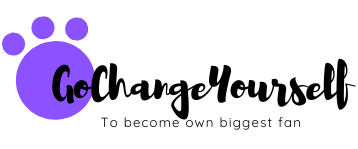In today’s fast-paced world, every decision we make shapes our personal and professional journeys. Whether it’s choosing a career path, making investment decisions, or even determining the best route for our daily commute, the art of decision making can make or break our success.
By cultivating a Growth Mindset, you empower yourself to learn, adapt, and ultimately master the process of making smarter choices. In this article, we’ll dive into five actionable hacks that will transform the way you approach decisions, ensuring that you not only feel more confident in your choices but also enjoy tangible, life-changing results.
Table of Contents
Hack #1: Embrace a Growth Mindset
A Growth Mindset is the belief that our abilities and intelligence can be developed with effort, perseverance, and learning. When it comes to decision making, this perspective is incredibly powerful. Instead of fearing mistakes or setbacks, you view each decision as an opportunity to learn and grow.
Actionable Plan:
- Reflect Daily: Set aside 10 minutes each day to reflect on your decisions, both big and small. Identify what worked and what didn’t.
- Seek Feedback: Encourage constructive criticism from colleagues, friends, or mentors. Use their insights to fine-tune your approach.
- Celebrate Progress: Acknowledge even minor successes. Celebrating progress reinforces the belief that improvement is a continuous journey.
- Stay Curious: Regularly challenge yourself with new experiences or tasks that push you out of your comfort zone.
By embedding a Growth Mindset into your decision-making process, you’ll become more resilient and adaptable, turning each decision into a stepping stone toward personal evolution.
Hack #2: Prioritize Your Options
Not all decisions carry the same weight. Learning to identify and prioritize what matters most can dramatically improve the quality of your choices. This hack is about filtering through the noise to focus on options that align with your core values and long-term goals.
Actionable Plan:
- List Your Goals: Begin by writing down your short-term and long-term objectives. This list will serve as a compass when faced with multiple options.
- Weigh the Pros and Cons: For every decision, create a simple pros and cons list. This visual aid will help you evaluate the potential impact of each choice.
- Rank Your Priorities: Assign importance to each option based on how well it supports your goals. Use a numerical scale (e.g., 1 to 5) to quantify their significance.
- Set Deadlines: Avoid overthinking by setting realistic deadlines for making decisions. This prevents analysis paralysis and encourages prompt action.
Prioritization streamlines the decision-making process and ensures that your choices are in harmony with your broader vision for success.
Hack #3: Trust Your Intuition – But Verify with Data
While a Growth Mindset encourages you to learn from mistakes, it also emphasizes the importance of trusting your instincts. However, intuition alone can sometimes be misleading. The key is to balance gut feelings with factual data and rational analysis.
Actionable Plan:
- Gather Information: Before making any major decision, research the facts. Use credible sources and data to inform your judgment.
- Combine Analysis with Intuition: When you find yourself at a crossroads, spend a few minutes meditating or engaging in mindfulness exercises. This helps clarify your gut feelings.
- Pilot Test: If possible, test your decision on a small scale. This trial run can provide concrete feedback and help validate your intuition.
- Review and Adjust: After acting on your decision, assess the outcome. If results are not as expected, adjust your strategy accordingly and document your learnings.
By blending intuition with evidence-based insights, you reduce the risk of impulsive choices and build a more robust decision-making framework.
Hack #4: Seek Diverse Perspectives
No one has all the answers, and often the best decisions emerge from a tapestry of diverse viewpoints. By actively seeking alternative opinions, you open the door to new ideas, challenge your biases, and uncover potential pitfalls that you might have overlooked.
Actionable Plan:
- Build a Trusted Network: Cultivate relationships with mentors, peers, and professionals from various backgrounds.
- Engage in Group Discussions: Regularly participate in brainstorming sessions or focus groups where different viewpoints are encouraged.
- Ask Open-Ended Questions: When consulting with others, ask questions that prompt in-depth responses rather than simple yes/no answers.
- Consider Counterarguments: Actively seek out opinions that challenge your perspective. This practice can strengthen your reasoning and lead to more balanced decisions.
Diverse perspectives not only enrich your decision-making process but also empower you to approach challenges from multiple angles, leading to more innovative solutions.
Hack #5: Reflect and Learn from Past Decisions
Reflection is a critical component of continuous improvement. Keeping a record of your decision-making journey allows you to identify patterns, celebrate successes, and learn from missteps. This habit is especially beneficial when paired with a Growth Mindset, as it reinforces the idea that every decision is an opportunity to grow.
Actionable Plan:
- Maintain a Decision Journal: Document your significant decisions, including the reasoning behind them, the expected outcomes, and the actual results.
- Conduct Post-Mortems: After a major decision, hold a personal review session. What went well? What could have been improved?
- Set Review Intervals: Schedule monthly or quarterly reviews of your decision journal. Over time, this will reveal trends and areas for improvement.
- Adapt and Evolve: Use the insights gained from your reflections to tweak your decision-making process. Embrace changes that will lead to better outcomes in the future.
By systematically reflecting on your decisions, you build a foundation of experience that continually informs and enhances your future choices.
Conclusion
Mastering the art of decision making is not about achieving perfection—it’s about making consistent, informed choices that align with your personal and professional goals.
By embracing a Growth Mindset, prioritizing your options, trusting your intuition balanced with data, seeking diverse perspectives, and reflecting on past decisions, you create a dynamic process that continually improves with every choice you make.
Implementing these five life-changing hacks can lead to smarter, more effective decision making, enabling you to navigate life’s complexities with confidence and clarity.
Remember, every decision is a chance to learn, grow, and move one step closer to your ultimate potential. Start applying these actionable strategies today and experience the transformation in your decision-making process.
Top 20 FAQ
Q1: What is a Growth Mindset and how does it relate to decision making?
A Growth Mindset is the belief that abilities and intelligence can be developed over time, which helps you view decisions as learning opportunities.
Q2: How can a Growth Mindset improve my decision-making process?
It encourages resilience and continuous learning, turning every decision into a chance to grow and improve.
Q3: Why is prioritizing options important in decision making?
Prioritizing helps you focus on what truly matters, ensuring that your choices align with your long-term goals.
Q4: What steps can I take to develop a habit of reflecting on my decisions?
Maintain a decision journal, conduct regular post-decision reviews, and set aside time for self-reflection.
Q5: How does seeking diverse perspectives enhance decision making?
It introduces new ideas, challenges biases, and uncovers potential pitfalls, leading to more balanced decisions.
Q6: What actionable steps can I take to embrace a Growth Mindset?
Reflect daily, seek constructive feedback, celebrate progress, and stay curious by stepping out of your comfort zone.
Q7: How do I balance trusting my intuition with the need for data?
Gather factual information, combine it with mindfulness to gauge your gut feelings, and pilot test your decisions when possible.
Q8: What is the benefit of maintaining a decision journal?
It helps you track your thought processes, learn from past experiences, and identify patterns in your decision-making.
Q9: Can decision-making skills be improved over time?
Yes, by continuously learning from experiences and adopting a Growth Mindset, you can enhance your decision-making abilities.
Q10: What should I include in my pros and cons list for decision making?
List the potential benefits and drawbacks of each option, weighing them according to how they align with your goals.
Q11: How can I avoid analysis paralysis when making decisions?
Set realistic deadlines for decision making and prioritize your options to reduce overthinking.
Q12: Why is it important to celebrate small successes in decision making?
Celebrating progress reinforces positive behaviors and motivates you to keep improving your decision-making skills.
Q13: How can I develop my intuition for better decision making?
Practice mindfulness, trust your gut feelings, and validate them with factual data and trial tests.
Q14: What role does self-reflection play in the decision-making process?
Self-reflection allows you to evaluate outcomes, learn from mistakes, and adjust your strategies for future decisions.
Q15: How do I know which decisions are worth prioritizing?
Evaluate how each decision aligns with your long-term goals and core values, then rank them based on importance.
Q16: What are some effective methods to seek diverse perspectives?
Engage in group discussions, ask for feedback from mentors, and actively seek opinions that differ from your own.
Q17: How often should I review my decision journal?
Aim to review it monthly or quarterly to identify trends and refine your decision-making process.
Q18: Can a Growth Mindset help in overcoming decision-making anxiety?
Yes, by viewing mistakes as learning opportunities, a Growth Mindset reduces fear and builds confidence in decision making.
Q19: What are some tools or apps that can help track my decision-making process?
Tools like Evernote, Notion, or dedicated journaling apps can help you organize and review your decisions.
Q20: What long-term benefits can I expect from mastering decision-making skills?
Improved decision making leads to better personal and professional outcomes, increased confidence, and continuous growth through learning and adaptation.
-
Importance of Taking Risks for Success
Let’s face it—taking risks is scary. Whether it’s quitting a job, starting a business, or even just speaking up in a meeting, the idea of stepping outside what’s familiar can feel downright uncomfortable. But here’s the thing: most people who achieve real success didn’t get there by playing it safe. They took leaps. They bet…
-
What to do After Layoff ? | 7 Steps to Bounce Back Stronger and Smarter
Losing your job is one of those moments that just hits differently. It’s not just about the paycheck—it’s about routine, identity, even pride. One minute you’re gearing up for a busy quarter, and the next, you’re trying to figure out what the heck just happened. If you’re sitting there wondering what to do after layoff,…
-
How to Avoid Fast Food Cravings? | 6 Quick Ways to Start
Let’s be honest — resisting fast food can feel like an uphill battle. It’s everywhere: billboards, apps, street corners. And when you’re tired, stressed, or just plain hungry, it calls your name louder than anything else. But here’s the truth: avoiding fast food cravings isn’t about being superhuman. It’s about setting yourself up for success…







